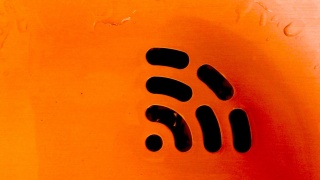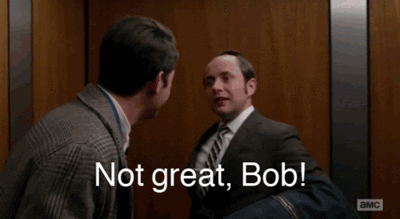"But business ain’t beanbag, and “good enough” clearly isn’t cutting it for Paul Singer. Unless something changes dramatically, it would appear that Jack Dorsey is in for the fight of his life."After bending over backward to not enforce Twitter policy for politicians, this is the thanks Jack gets?


"I’d start with, at most, 10 news sites to subscribe to. This will give you a feel for how fast you want the feed to move. Too slow? Add more. To fast? Delete a few. I try to narrow things down even further: Instead of subscribing to the New York Times, which publishes dozens of items per day, I subscribe specifically to the Times’ tech section, which means I get a much more curated selection."Seconded. And hey, I could have written this. This article has great advice for embracing the decentralized lifestyle. I personally use a self-hosted Tiny Tiny RSS with Reeder on iOS which costs about $8/month at AWS. Instead of limiting feeds, I subscribe liberally and put them in folders by subject. Then I browse by subject periodically instead of the full list of feeds and tune from there.

My Year in Social Media
So that's some kind of progress. How is my current relationship with social media? To put it in meme terms:

Leaving social media does not make it go away. If you work on the web in any capacity (I do), the big sites like Facebook, Twitter, and Google are omnipresent. It seemed like each week of 2018 brought a new jaw-dropping revelation of Facebook mismanagement. Google leaked user data, hid it, and employees were in the streets asking for fair working conditions. Twitter is a platform for Nazis because they incentivize engagement above all things and do not adequately handle abuse. I agree with Anand Giridharadas who posted this Twitter thread: "Trying to fight a predatory, politically connected monopoly through heroic personal responsibility doesn't work." We need regulation.
So that's depressing! I wouldn't call it heroic responsibility, but I did change my online habits quite a bit in 2018. I now read and post social messages via Mastodon which is a distributed kinder, gentler Twitter. I wish more people would make the switch so I could close my Twitter reading window altogether. I stopped posting photos online which is something I used to enjoy. I'll make an effort to post them here more frequently.
In October I did start posting more frequently to this site which means I also started paying more attention to my site metrics. Last week I made a snarky post about Google Analytics which was my poor way of processing this. I deleted it because the fact is, Google Analytics is a necessary tool if you work on the web. Necessary, but I don't like the way it turns people into numbers. So that's a tension I'm trying to live with and the answer might be that I shouldn't use web marketing tools for personal projects. I'd like to have a way to know if what I'm writing here is being read and resonating, but not if it means getting alerts and notifications that traffic is dropping, engagement is lower, and people are bouncing away forever. There has to be a more humane way to visualize and engage with web audiences.
My wish for social media in 2019 is for new leadership at all of the major web companies. I don't think we'll ever see them disappear, nationalized, or regulated in a meaningful way. I'd like them to have a less central role in how we create and share online. I think some new leaders could steer the companies away from growth-at-all-costs toward a more ethical relationship with users. I'd like to see them usher in the era of maintenance! That's where they take the amazing tools they've built and optimize them to work within society.
Twitter Breakup
Jerry Seinfeld had a funny line on his show about how breaking up is like knocking over a coke machine:
That's how I feel about Twitter right now. Even though I swore off Twitter in January I've found myself back in the daily grind there. Despite uninstalling the app on my phone and hacking my hosts file, I still end up back. Twitter and I have had some great times over 11 years and five months! It's not easy to give that up. I found my current job via Twitter, I hear stories from people I would never have met, I keep up with friends, I get industry news, and there are always great jokes.
But Twitter also has a problem with toxic speech that they refuse to address. That is the dealbreaker for me. That's the poop in the pool. Here's a sampling of recent decisive leadership from Twitter:
- The Most Powerful Publishers in the World Don’t Give a Damn
- Inside Twitter’s Struggle Over What Gets Banned
- Twitter is reportedly launching a ‘charm offensive’ aimed at conservatives
I also found myself identifying with Matt's My own reasons for leaving Twitter. I too feel that addictive pull all. the. time.
So this movement to deactivate accounts on Friday is just the kick in the butt I need to remind myself to make conscious choices about the places I patronize.
I will genuinely miss the fun parts of Twitter but I don't want to be part of a platform that hosts hate speech. The US government tolerates hate speech because it places a high value on free speech. I understand the trade-off there but Twitter is not the US government. There are plenty of places to publish online. Twitter is more like the host of a big party. And if the host of the party doesn't kick out nazis when they show up it's time to knock over the coke machine for good. (I'm definitely mixing metaphors here but the point is that I don't feel comfortable spending time and attention there anymore.) Twitter, I know it's a cliché but: it's not me—it's you.
Controlled Link Burn
Last week Andy Baio broke the Twitter time continuum with a well-crafted Twitter search that shows activity from the people you follow from 10 years ago. Reading a 2008 feed made me think about text vs. media embeds and I enjoyed the discussions about tweeting in the modern world. Someone put together a handy page of Twitter time-traveling links if you'd like to try it out.
Jessamyn West is fighting the good fight against Equifax by suing them in small claims court over their data breach. A week or so ago she went to court: Equifax Statement for Small Claims Court. Be sure to read the the follow-up tweets at the end of the article about how it went. Equifax probably won't pay a meaningful price for their recklessness with our data, but I'm glad Jessamyn is trying.
How is the smart speaker craze going? Vox epxlains How an Amazon Echo ended up recording and sharing a private conversation. I think it was @sudama who suggested calling them smart microphones instead so we remember data flows both ways.
I spent way too much time having fun at WASD Keyboards customizing keycap colors. I don't really need another mechanical keyboard. I don't really need another mechanical keyboard. I don't really need another mechanical keyboard.
This is some digital spycraft wizardry: Glyph Perturbation, The Science of Font Steganography. By imperceptably changing how fonts are displayed, you can embed encrypted messages within innocuous carrier text.
This was a good reminder for me to make time for reading with my kids: What's Going On In Your Child's Brain When You Read Them A Story?.
I recently started playing electric guitar again for the first time in *cough*+ years and that opened a whole new world of YouTube tutorial videos I wasn't aware of before. I'm here to recommend Paul Davids and fun videos like his 10 Extremely Tasty Licks.
The link thicket is light on web developer help this time around, but this 2014 article about How to Write a Git Commit Message is still great. My favorite tip is Use imperitive statements as the subject line. I always try to do this and I think it gives commit messages a timeless quality—like you're explaining to someone mid-process how to recreate your steps.
With my weekly URLs now ablaze, the only thing left to do is fire up Portland Cello Project playing Paranoid Android (a good version finally online!) as background music while I watch my reading list disappear.
Link Defragmentation
First, go listen to the latest episode of Matt Haughey's podcast Hobby Horse where he interviews people about their side projects. In Episode 4 he talks with Erica Baker about ancestry and geneology and it absolutely changed the way I look at family trees. We’re all connected in ways I hadn’t thought about before. So great—go listen!
While I'm talking podcasts, Gimlet has a new one out called The Habitat that I'm hooked on after one episode. It's about a NASA study to determine how six humans live together for a year in a confined space. They're trying to simulate the conditions that people would live in on a mission to Mars. You can binge the whole thing.
Last week I posted about the SmugMug/Flickr exchange and I've been enjoying the takes: Tom Coates, Ben Cerveny, Jim Ray, and for context this 2012 article (cold take?) by Mat Honan: How Yahoo Killed Flickr and Lost the Internet.
Did you know you can look up at least some of the interests Twitter has assigned to you for personalized advertising? I was surprised at how accurate some of the more obscure interests were but I shouldn't be. We need more privacy and dumber phones.
Google set up a new way to query information in books called Talk to Books. As an introvert I feel like Google really gets me with this project, you know? I'll just be over here talking to books.
@lhl found a tumblr dedicated to gathering depictions of floppy disks in anime. It's even better than it sounds.
ok, off to delete my reading list. Defrag complete!
Tweet Skimmer
I think I can solve the circus-casino problem™ by removing the tweets from their toxic native environment and displaying them as text-only in my archaic feed reader. And that's what I've done.
Here is tweet-skimmer. It's a node.js script I'm using that gets a user's tweets from the Twitter API and creates an RSS feed without retweets or replies. By the time the tweets hit my feed reader, they are plain text with no media embeds, no images, no kaleidoscopic bears riding tricycles, no favorite counts, and no surrounding Twitter UI.
After testing for two full days I think this will allow me to batch tweet-reading into something I can skim every so often. That way I'll feel like I'm staying up to date with specific people without picking up the daily Twitter habit again.
The metaphor I've been using lately to describe this is that my Twitter habit is like having junk food in the house. I'm sure it would be no problem to have unlimited Doritos™ if I only ever ate 15% of each bag. It just never works out that way. So I'm hoping this new bit of scripting is like only buying 15% in the first place. It's digital portion control. Fun sized tweets.
This.
For a look at the mechanics behind intermittent reinforcement that Joel describes there's a book called Hooked: How to Build Habit-Forming Products. It's as gross as it sounds. However, it does help you look at the products you use in a new, harsher light. I'd use the book as a digital literacy exercise rather than a how-to manual as it's intended.